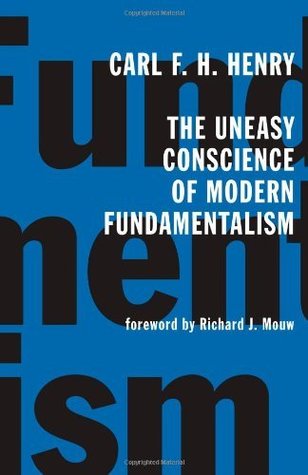More on this book
Kindle Notes & Highlights
Read between
November 23 - November 23, 2017
One of the things which modern man most needs to be saved from, is a moral sense which is outraged at a divine provision of redemption.]
we have needlessly invited criticism and even
ridicule, by a tendency in some quarters to parade secondary and sometimes even obscure aspects of our position as necessary frontal phases of our view.
it is needful that we come to a clear distinction, as evangelicals, between those basic doctrines on which we unite in a supernaturalistic world and life view and the area of differences on which we are not in agreement whil...
This highlight has been truncated due to consecutive passage length restrictions.
if we would press redemptive Christianity as the obvious solution of world problems, we had better busy ourselve...
This highlight has been truncated due to consecutive passage length restrictions.
It is an application of, not a revolt against, fundamentals of the faith, for which I plead.
I address my words to fellow evangelicals, in the hope that they shall not make every faltering word an occasion of calumny, but rather inviting them to stand firm in
the recognition that, while we are pilgrims here, we are ambassadors also.
The shallow insistence on inevitable world progress and on man's essential goodness has been violently declared false.
But what is almost wholly unintelligible to the naturalistic and idealistic groups, burdened as they are for a new world order, is the apparent lack of any social passion in Protestant Fundamentalism. On this evaluation, Fundamentalism is the modern priest and Levite, by-passing suffering humanity.
by and large, the Fundamentalist opposition to societal ills has been more vocal than actual.
There is also the tendency to replace great church music by a barn-dance variety of semi-religious choruses; some churches have almost become spiritualized juke boxes.
the common strand that runs through Fundamentalism and pessimism is that both are viewpoints from which the humanism, or humanitarianism, has evaporated.
But the sin against which Fundamentalism has inveighed, almost exclusively, was individual sin rather than social evil.
It remains a question whether one can be perpetually indifferent to the problems of social justice and international order, and develop a wholesome personal ethics.
The conviction is widespread that Fundamentalism takes too pessimistic a view of human nature to make a social program practicable.
There is a growing awareness in Fundamentalist circles that, despite the orthodox insistence upon revelation and redemption, evangelical Christianity has become increasingly inarticulate about the social
reference of the Gospel.


